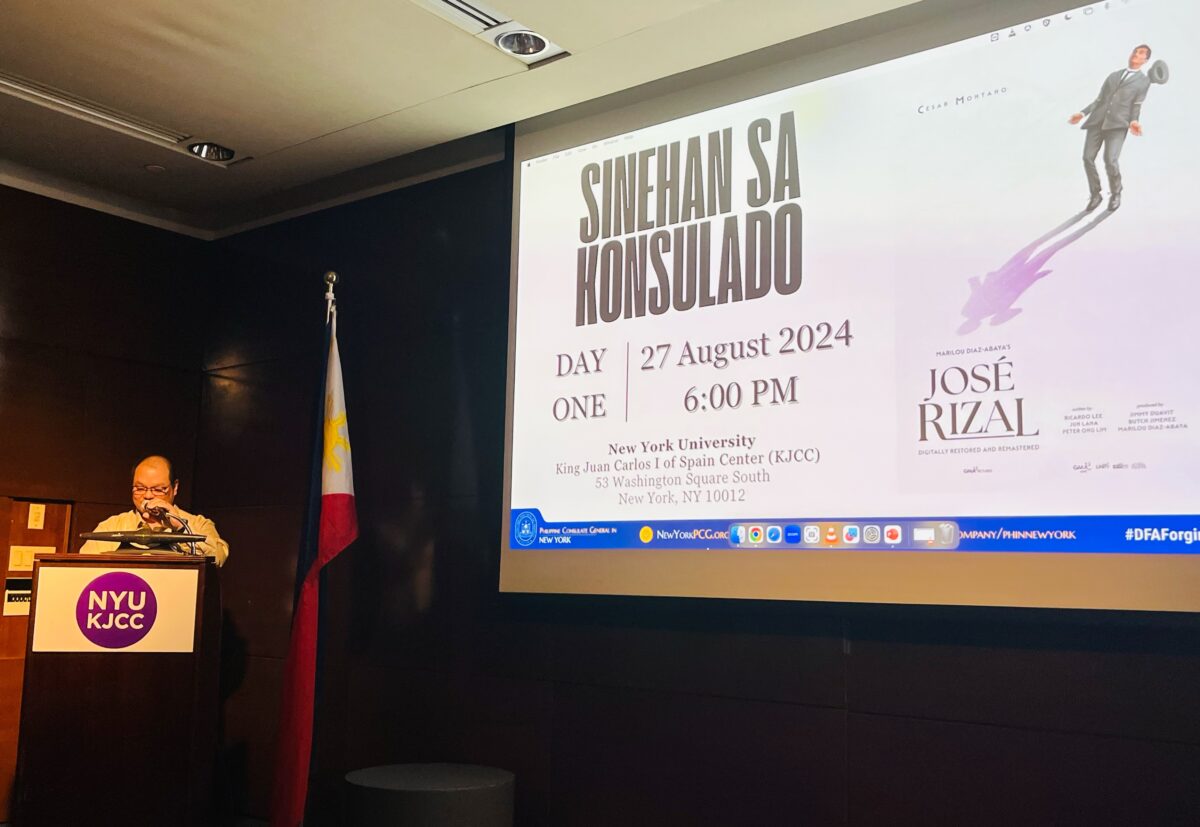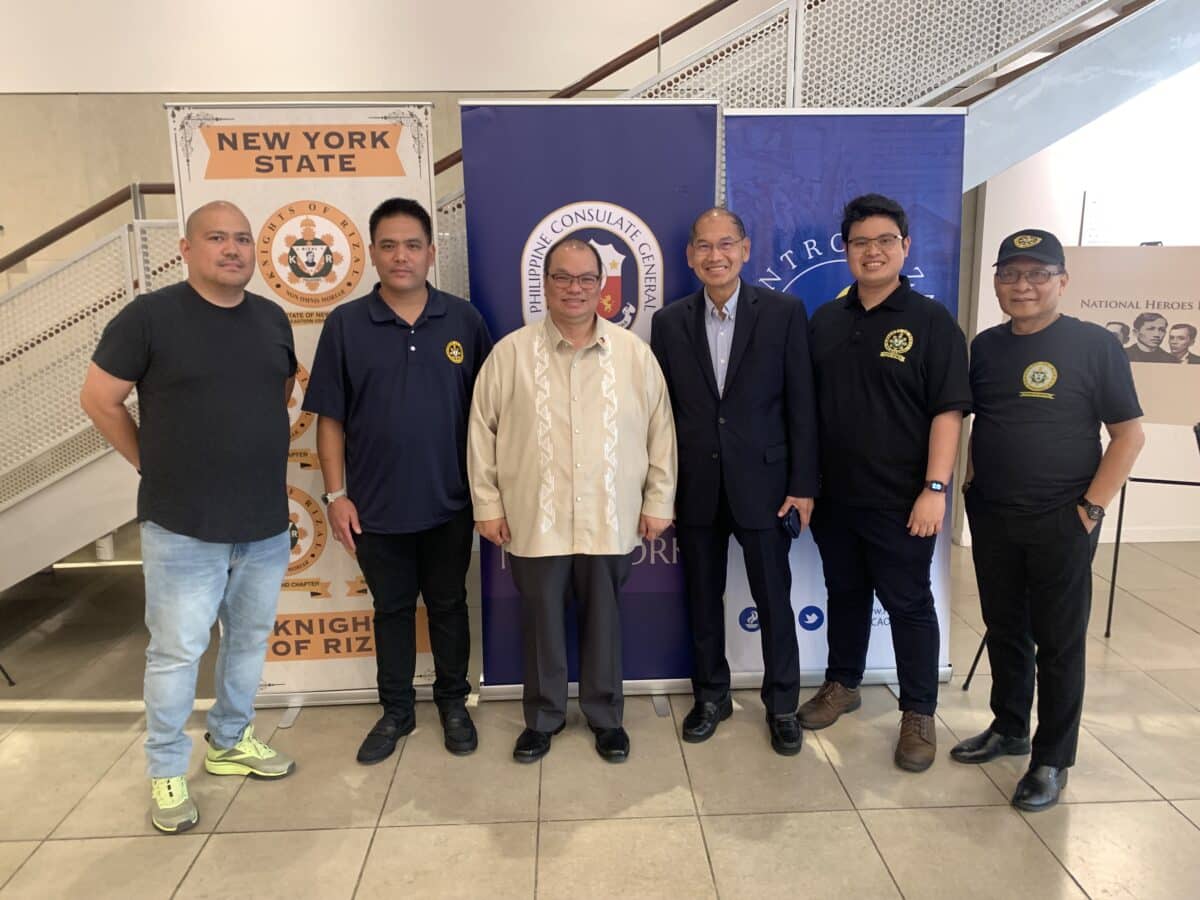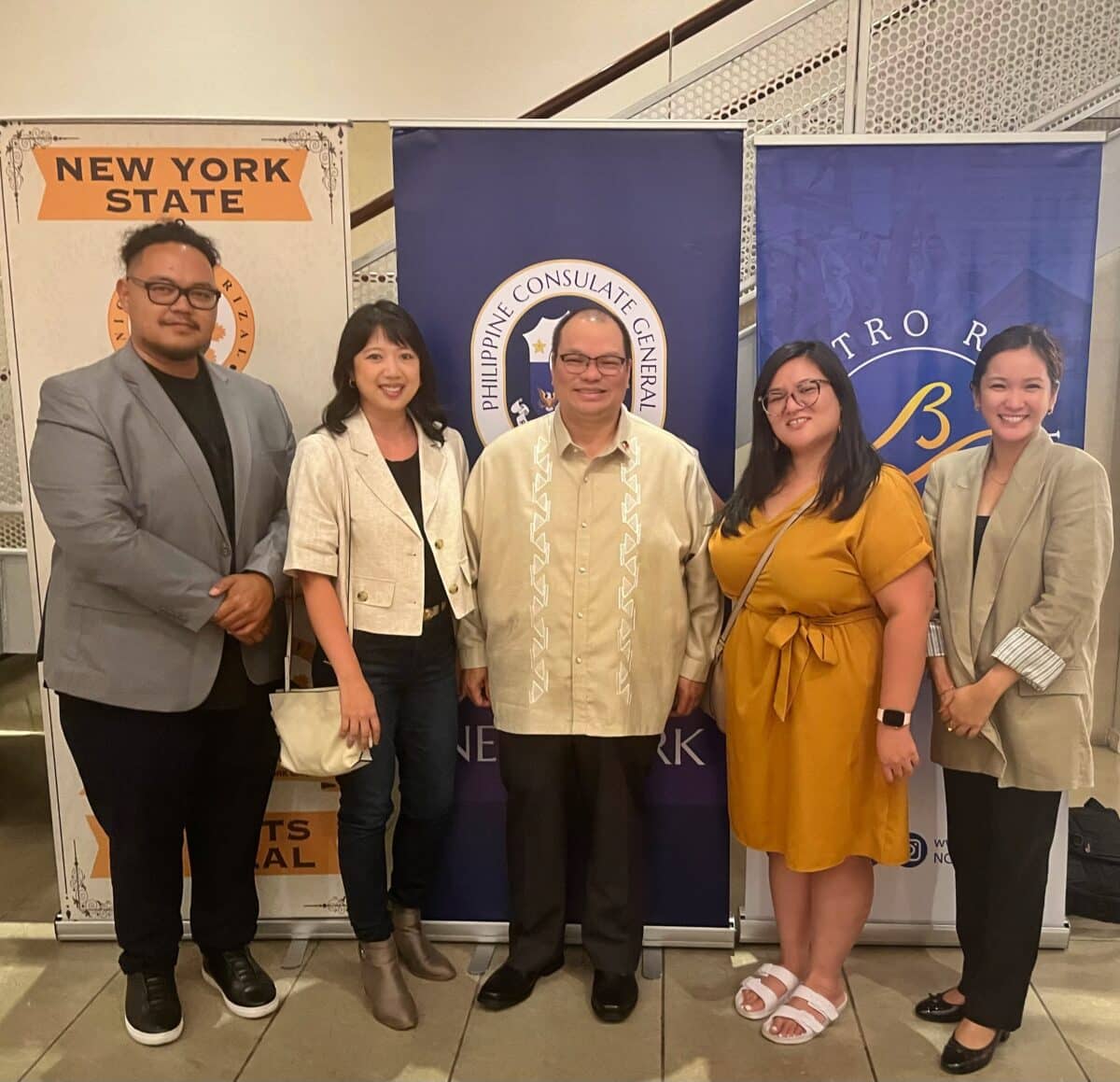Restored Jose Rizal film premieres at NYU, celebrates Filipino heritage

Philippine Consul General of New York Senen Mangalile gives his opening remarks at NYU King Juan Carlos Center. Photo by Carol Tanjutco
NEW YORK – In a remarkable celebration of Filipino heritage and cultural pride, a digitally restored version of the 1998 multi-award-winning historical drama, “Jose Rizal,” was screened at NYU’s King Juan Carlos Center.
The event coincided with the Philippines’ National Heroes Day, adding an extra layer of significance to the film premiere.
This was made possible by The Philippine Consulate General of New York, in collaboration with the Sulo-Philippine Studies Initiative at NYU, GMA Network and Northeast chapters of the Knights of Rizal.

Philippine Consul General of New York Senen Mangalile (3rd from left) with Atty. Ferdinand Suba, Supreme Council of the Knights of Rizal trustee (4th from left) and Knights of Rizal members at the NYU King Juan Carlos Center. Photo by Carol Tanjutco
The remastering of Jose Rizal, a film about the Philippines’ national hero, breathes new life into this classic, allowing new generations to experience Rizal’s story in vivid detail.
The film’s themes of sacrifice, resistance and the quest for justice are universal, providing inspiration not just to Filipinos but to all who value freedom and human dignity.
This special screening was part of the “Sinehan sa Konsulado” series, a key cultural initiative designed to bring the richness of Philippine cinema to the New York tri-state area.
While the annual film showing series have traditionally been held at the Philippine Consulate on Fifth Avenue, the screening of “Jose Rizal” at NYU’s King Juan Carlos Center marks the continuation of the partnership between Philippine Consulate and the Sulo-Philippine Studies Initiative at NYU.

(From left): Adrian De Leon, assistant professor of History at NYU College of Arts and Sciences and incoming co-chair of Sulo- Philippine Studies Initiative at NYU; Porsha Seechung, graduate student at NYU School of Professional Studies; Philippine Consul General of New York Senen Mangalile; Emilie Tumale PhD, alumna of NYU Steinhardt and Project Coordinator for Sulo and NY Philippine Consulate Vice Consul Cathe Aguilar. Photo by Carol Tanjutco
This partnership highlights the importance of cultural exchange and academic cooperation in promoting a deeper understanding and appreciation of Filipino history and identity. It demonstrates a shared commitment to building bridges between these communities.
About the film
“Jose Rizal,” directed by the late National Artist Marilou Diaz-Abaya, is a powerful depiction of the life and sacrifices of Jose Rizal, a Filipino patriot whose writings and actions were instrumental in the fight against Spanish colonization.
The film portrays Rizal’s final days, from his imprisonment at Fort Santiago to his execution, interspersed with flashbacks of his childhood, his education, and his prolific writing career that produced the revolutionary novels “Noli Me Tangere” and “El Filibusterismo.”
The film also highlights the intersection of Rizal’s life with pivotal moments in Philippine history, including the uprising led by Andres Bonifacio and the Katipunan against Spanish rule.
This portrayal of resistance and the struggle for freedom serves as a visceral reminder to the Filipino diaspora of their rich heritage and the sacrifices made for the nation’s independence.

